- Home
- neetha Napew
Beyond Varallan Page 2
Beyond Varallan Read online
Page 2
“Tonetka?” I called out. “She’s stopped bleeding. For no apparent reason.”
“This one as well,” Squilyp said.
“Scan the lacerations for foreign material,” Tonetka said. I glanced back and saw her bent over one of the educators with a magniviewer. “Do either of you see anything?”
Squilyp’s gildrells flared with agitation as he scanned the other female. “I cannot find visible debris here,” he said, and glared down at the moaning patient. He probably thought she was hiding it from him.
Tonetka addressed the educator she was treating. “Tell me, ClanCousin, what caused these injuries?”
“I do not know, Senior Healer.” Pain made the patient’s voice sound reedy. “Fasala did not return from our group environome activity. We found her an hour ago, on the fourteenth level. The interior buffer...” Her eyes closed briefly. “It shattered.”
I knew vaguely what an interior buffer was-some sort of security barrier inside the hull that prevented accidental decompression. Too bad I couldn’t apply some of that to the Omorr’s mouth.
“That’s impossible!” I heard Roelm Torin yell from his berth across the ward. “No buffer could-“
At the same time, the Omorr said, “Interior buffers are indestructible. No-“
“Quiet!” Tonetka cut both men off, then asked the educator, “How many others were injured?”
“Only the three of us.”
“You are certain it was the buffer?”
“I felt it implode back on us.” The educator shuddered. “As if we had been slashed by a thousand unseen knives.”
Squilyp stopped probing his patient and stared at the educator in horror.
Roelm gasped. “Mother of All Houses.”
I guessed that meant these buffer things did shatter. The constriction in my chest started to loosen. Maybe it hadn’t been from an attack on the ship. Plus Squilyp was actually wrong about something. The known universe was going to collapse. Right there in front of my eyes.
“Cherijo, Squilyp, set your scans for adaptable sonic alloy debris in the wounds,” the Senior Healer said.
“What, exactly, is ‘adaptable sonic alloy debris’?” I asked.
“It’s what they make buffers out of,” Squilyp said, overjoyed that he knew something I didn’t. “Sonic-based matter. It will not be visible to your eye, nor can you feel it. Use the most sensitive setting.”
Invisible, untouchable debris. Lovely. Could this possibly get any worse? “When we’re done here, I hope someone will explain this stuff to me,” I said as I recalibrated my scanner’s range.
Sure enough, when I made another pass the display revealed innumerable tiny shards lodged in each laceration. Tightly meshed together, which explained the coagulant effect-the ghost-debris had sealed off the wounds. When I applied my probe tip, the debris immediately surrounded it. Like sticking a finger in water.
“Any suggestions on how to remove something I can’t feel?” I asked. “Or grab?”
“Roelm?” Tonetka raised her head to consult him. “What is used to fit the alloy during construction?”
“Resonant harmonicutters,” the engine designer said.
My ears perked up at that. “Resonant?” I glanced over •: the edge of my mask at the engineer. “You mean you cut :•• these buffers with sound?”
My terminology made Roelm look pained. “They are sonically fitted to each vessel.”
Same difference, I thought, then addressed my boss. “Tonetka, remember when I told you about the ultrasound diagnostic imaging once used on my homeworld? We can adapt something like that to remove these shards.”
“Ultrasound?” Squilyp sneered at the archaic word. “Why don’t you simply hack them out with amalgam blades?”
I ignored him. It was easy, I’d had lots of practice. “We can modify our scanners to emit a low-spectrum sonic field.”
Tonetka saw where I was going. “The buffer alloy will vibrate, but how will we extract the shards?”
“Connect your dermal probes to the scanners,” Roelm’s called out. “Calibrate them to match the alloy’s frequency.”
The Omorr resident nodded his approval to Roelm.
“Buffer alloys are self-restorative. The nature of the matter is to be attracted to itself.” He then gave me a surly look.
Yeah, I thought, the dumb unqualified Terran does it again. Doesn’t it just make you want to scream?
The resident assisting with Fasala urged me in a low voice to make haste.
Once I’d modified my scanner, I connected a dermal probe to it and started on one of the larger wounds. A low sound like tinkling glass hummed as I probed the gash. Gently I tugged, and felt something slide from Fasala’s flesh.
Green blood flowed at once. Got it. A pass with an alternate scanner revealed no more shards in the site. I held up my gloved fist. Saw nothing on the surface of the probe.
“Uh, Roelm?” I raised my head and held up the instrument. “How do we dispose of stuff we still can’t see or touch?”
“Seal the probe in a vacuum.”
It took fourteen more probes before the child’s wounds were completely shard free. Sealed vacuum containers littered the deck. As we worked, a nurse summoned a team from Environment Operations to remove the dangerous shrapnel.
I finished first, so the unhappy task of signaling Fasala’s ClanParents fell on my shoulders. I broke the news to Darea and Salo as gently as I could. Both were on their way to Medical as soon as my signal terminated.
Once I was assured the Senior Healer didn’t need help with the educator (Squilyp would have slit his membrane junctures before asking for my assistance), I went to talk to Roelm. He was staring at Fasala, whose critical-care berth was only a meter away from his.
We both got to watch Darea and Salo rush in and hurry to their child’s side. Salo turned pale the moment he saw her. Darea pressed her fist tightly against her mouth.
“Roelm.” I sat down and patted his good leg to get his attention. The accident might not have been due to my presence on the ship, but I wanted some more details. “Tell me about these buffers.”
Glad for the distraction, Roelm explained the theory behind Jorenian ship construction. How the long, uninterrupted spiral design was so great for interdimensional jaunting. He used terms like “subatomic constants,” and “spontaneous symmetry.”
Quantum mechanical construction, I discovered, was about as riveting as a hematological abstract.
At last the engineer got to the important part. Evidently the exterior hull, while incredibly resilient, could still be breached by extreme forces, such as multiple displacer blasts. When that happened, the ship’s interior adaptable sonic alloy mantle, commonly referred to as “the buffer,” immediately sealed itself over the rupture. No matter how big it was.
“Not today,” I said.
“Buffers cannot be shattered.” Roelm was insistent. “It would require the complete destruction of the ship.”
“This one did. You saw those wounds.”
He muttered and pressed a huge hand over his eyes. Engineers didn’t like it when you messed with the universal principles of matter and interaction.
“Cherijo.” Tonetka gestured wearily for me as she transferred the last educator to a berth.
I left Roelm and joined her. “How are we doing?”
“The women will recover. Fasala?”
“She’s stable,” I said, glancing over. Salo was kneeling beside his ClanDaughter and holding her small hand. His other arm was around Darea, whose face was pressed into his tunic. “We’ll have to watch her, though.”
“Keep her on close monitor. I must report to Command Level. Captain Pnor requires my presence.”
Squilyp hopped over to join us. He was only nice to one person in the Medical Bay, for obvious reasons. “Senior Healer, you need to rest.”
I resisted the urge to make a kissing noise. Barely.
“After I make my report to Pnor.” She was curt; Tonetka dis
liked being treated like a doddering old woman. Too bad Squilyp hadn’t noticed that. “Have the accident site on level fourteen secured immediately,” she said to me. “Tell Ndo I demand a full investigation be conducted at once.”
The Omorr cleared his throat. Or had a moment of flatulence. It was a tough call. “Senior Healer, surely you don’t believe-“
“It matters not what I believe!” she shouted at him. “No more of our ClanChildren will be carried in here bleeding!”
“Of course.” Nervous, gildrells twitching, the surgical resident hopped away.
Probably off to sterilize some already clean part of the facility. I wondered if the Omorr had a term in their native language for “obsessive-compulsive disorder.” Or “insensitive jerk.”
“Cherijo!”
“Sorry.” I shook my head. I’d been so busy glaring at Squilyp I never saw the data pad Tonetka was holding out to me.
“The statement from the educator.” She thrust the data in my hands. “In the future, attend to me, not the surgical resident, when I am speaking to you!”
Tonetka was right. We couldn’t fool around with this situation, not with all the curious kids on board. I needed to focus on that. Not the insensitive jerk.
“Sorry,” I said. “I’ll see to it right away.”
As I rose, she put a hand on my arm.
“Your pardon, Cherijo.” She lifted her fingers to push them through her disordered hair. The purple streaks of age seemed more pronounced. “You would think after all these revolutions, I would learn to distance myself from a pediatric case.”
I gently put my hand on her shoulder and squeezed. “I hope you never do, boss.”
I signaled the Ship’s Operational Officer, Ndo Torin, and relayed Tonetka’s orders. I quoted her using the same tone and expression she’d used to singe my eyebrows off. It was the simplest way to let the S.O. know The Senior Healer Was Not Happy.
Ndo, who was second in command on the Sunlace, vowed to conduct the investigation personally. I didn’t blame him. Tonetka in a rage was awe inspiring.
“How is Fasala?” he asked. Like all Jorenians, he was very protective of the kids, and appalled to learn of what had happened to her.
“Serious, but stable. Salo and Darea are with her. We’ll take good care of her, Ndo,” I said. “Let me know if you need any further data from Medical.”
“I would also like to interview the two educators after we inspect the damaged cargo section. Thank you, Healer.”
I made rounds and kept a close watch on Fasala’s vitals. Poor kid. Her small, motionless body huddled in the center of the berth. Her ClanParents said little, and didn’t move an inch away from her side.
I kept thinking about how I’d feel, if she was my child. Kao and I might have had a little girl like that. If I hadn’t killed him, trying to save his life.
After discovering I was the result of a highly illegal genetic experiment, I fled Terra for the multispecies colony on Kevarzangia Two. There I had worked as a FreeClinic Trauma physician, and fallen in love with a Jorenian pilot named Kao Torin.
A mysterious epidemic decimated the colony. I didn’t become infected, but thousands did, including Kao. Quadrant cruisers arrived to enforce planetary quarantine. The colony erupted into hysteria, then violent anarchy. Thousands died. Plans were made to sterilize the planet.
During the worst of the chaos, Kao stopped breathing.
In desperation I injected my lover with my own blood, which revived him and destroyed the contagion. However, my genetically enhanced plasma went on to attack Kao’s own cells, and eventually killed him.
I’d live with that forever.
The Jorenians didn’t blame me for what I’d done. Instead, they seemed to want to help me get over it-even Xonea Torin, Kao’s ClanBrother. Xonea and my Oenrallian friend, Dhreen, spent plenty of off-duty hours with me, the two pilots making it their mission to keep me busy. Xonea tried so hard to be the brother I’d never had.
Speak of the Jorenian. Xonea appeared at my side, his large frame tense as he spotted the unconscious child and her distressed ClanParents.
His gaze went to Fasala’s head wound. “She will live?”
I nodded, lifted a finger to my lips, and led him off to Tonetka’s office, where we could talk in private. Xonea immediately eliminated at least half the available space. Maybe because his shoulders were as wide and solid as a deck support strut. Or the two and a half feet he had on me.
Kao had been almost as tall, I thought, then thrust the image away.
My ClanBrother was still wearing his uniform, which meant he had come here directly off shift. The silver tunic complemented his dark azure skin. A warrior’s knot secured the long, straight black hair at the back of his neck. Like all the Jorenian males, he didn’t wear any ornaments. They didn’t have to.
Compared to him, I resembled a scrawny child. Like the Jorenians, I had black hair, but mine possessed a silvery sheen theirs didn’t, the same “grey veil” passed down from a distant Native American ancestor. My pale Terran flesh made me appear ghostly beside my sapphire-skinned ClanBrother. We looked a lot like disproportionate, negative photoscans of each other.
I gave him an abbreviated report on the child’s condition.
“She is so young,” he said, then gave me a thoughtful look. “You are blaming yourself for this.”
Another annoying thing about Jorenians. They were incredibly perceptive. “Not really,” I lied.
He didn’t buy that. “The ship was not under fire when this happened, Cherijo. There have been no League vessels within a light-year of our position since our last transition.”
“A mercenary vessel-“
“Would still show up on our perimeter scanners,” he said.
“All right.” I scowled at him. “It wasn’t my fault.” I didn’t say this time, but Xonea picked up on that as well.
“Cherijo. You must release Kao to his journey.”
Easier said. “We did that, Xonea. Remember? I gave part of the eulogy.” I had nearly cracked into a heap of small pieces doing it, too.
One big hand settled on my shoulder. “We sent his body to the embrace of the stars. Yet his memory remains with you.”
“I’ll never forget him.” What was wrong with his memory? It was all I had left. The stars weren’t getting it.
“No.” Xonea’s hand tightened, then drew away. “I do not believe you will.” He made a graceful gesture that was the Jorenian equivalent to shaking his finger in my face. “Only know, Healer, you cannot walk two paths.”
Jorenian journey philosophy was full of little gems like that. “You cannot walk two paths” (make up your mind); “select the journey to complement your destination” (make up your mind and decide where you want to go); and the ever-popular “a wise traveler knows his direction” (do you even know where you’re going, stupid?).
What else could be expected from a species whose idea of a good time was to travel a thousand light-years? For no particular reason, either. The mood hit them and wham!, they were firing up a stardrive.
“Don’t worry. I’ll stick to one path, Xonea.”
“You are my worry.” Xonea gave me a chiding look. “I remain your ClanBrother, Cherijo.”
In the usual Jorenian roundabout way, he was saying I didn’t have to be so touchy, and I wasn’t alone. “Thanks.”
He glanced back through the viewer at Fasala. “What made those wounds on her?”
“One of the educators claimed a buffer shattered on level fourteen. I know, I know.” I stopped him with my hand before I got another lecture on astroengineering. “The adaptable sonic alloy can’t be breached or smashed.” I thrummed my fingers on the surface of the desk. “Xonea, we spent a good hour picking pieces of this indestructible buffer out of those three patients. What is going on?”
Xonea regarded me steadily. “A buffer does not simply collapse. It never shatters.”
Even the laws of science bent, on occasion. “If the hull p
anel was breached, why didn’t the buffer explode outward, into space?” I asked.
“The buffer would contract and reform. Any weakness would be immediately arrested by the self-restorative nature of the alloy. Here, I will show you.”
Xonea used Tonetka’s display to key up a component schematic on the alloy, then programmed it to display the buffer under breach conditions. The simulation resembled something trying to make a hole in a thin sheet of water.
One long blue finger pointed to the screen. “See how the weak point is drawn inward at once? The expanse closes in upon itself. No alloy material is separated or lost. Nothing may penetrate the buffer thus.” He advanced the simulation, and showed me how the buffer instantaneously reformed over whatever had tried to make a hole in it.
“Wouldn’t a breach cause at least some of the alloy to detach?”
“No. Sonic-based alloy bonds at the subatomic level. Nothing can separate it except-“
I remembered the term Roelm had used. “A harmoni-cutter?”
“Yes.”
My fears about the mercenaries resurfaced at once. “What about a sonic-based weapon?”
“There are none in existence, to my knowledge.” Xonea collected weapons, so he’d know that. “Harmonicutters require tremendous power to operate, more than any star vessel could generate alone. It would require planetary resources. The buffer did not shatter.”
We weren’t anywhere near a planet. So it hadn’t been a League attack. “I personally removed fourteen containers of that stuff from Fasala’s wounds. Believe me, Xonea, you lost a good-sized chunk of your impervious alloy today.” He straightened and made a gesture of frustration. “Yeah, I know exactly how you feel.”
I studied my friend’s face. At that moment, his resemblance to the man I’d loved had never been more acute. Soften the chin, add a few laugh lines, and he could have been Kao’s twin. If only... no, I wouldn’t do this. Kao was dead.
“Caution,” Ndo’s voice said from the console panel, “Transition in fifteen minutes.”

 Zero City
Zero City Freedom Omnibus
Freedom Omnibus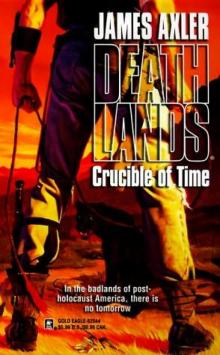 ACrucible of Time
ACrucible of Time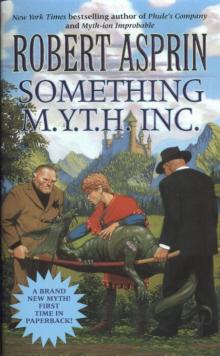 Something MYTH Inc
Something MYTH Inc Forbidden Land
Forbidden Land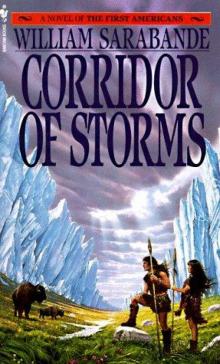 Corridor of Storms
Corridor of Storms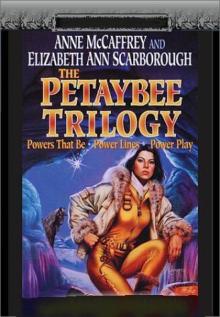 The Peytabee Omnibus
The Peytabee Omnibus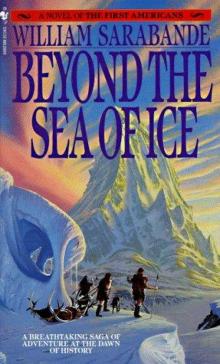 Beyond the Sea of Ice
Beyond the Sea of Ice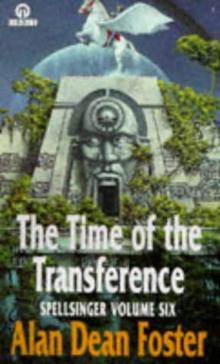 The Time Of The Transferance
The Time Of The Transferance EarthBlood
EarthBlood The Lexal Affair
The Lexal Affair The Web
The Web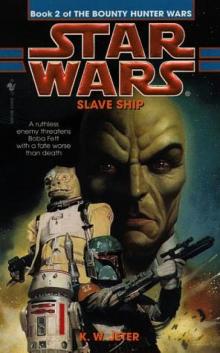 Slave Ship
Slave Ship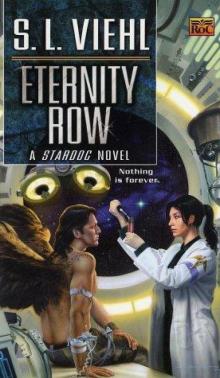 Eternity Row
Eternity Row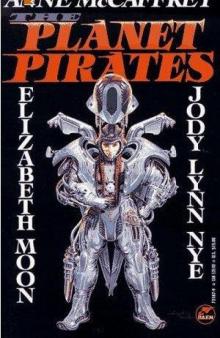 Planet Pirates Omnibus
Planet Pirates Omnibus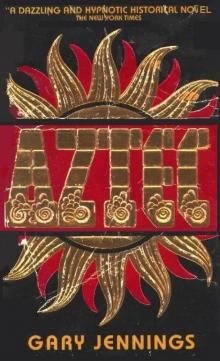 Aztec
Aztec The Awakening
The Awakening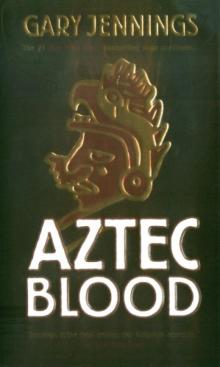 Aztec Blood
Aztec Blood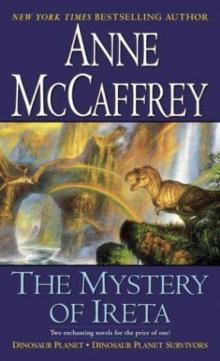 The Mystery of Ireta Omnibus
The Mystery of Ireta Omnibus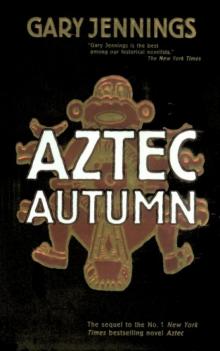 Aztec Autumn
Aztec Autumn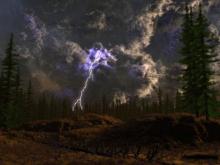 The Savage Horde
The Savage Horde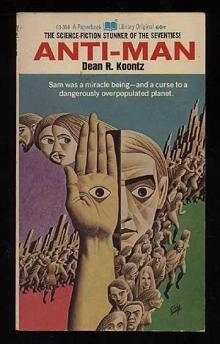 Anti - Man
Anti - Man Deep Trek
Deep Trek Starfall
Starfall The Paths Of The Perambulator
The Paths Of The Perambulator Fool's Fate
Fool's Fate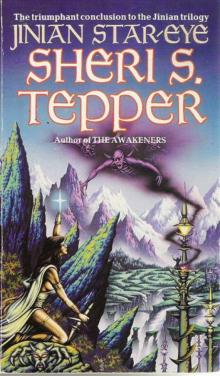 Jinian Stareye
Jinian Stareye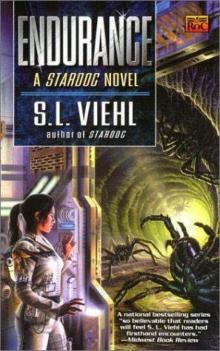 Endurance
Endurance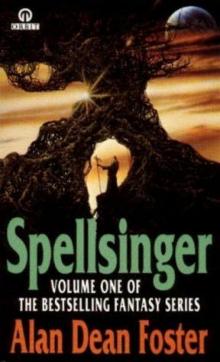 Spellsinger
Spellsinger Hybrids
Hybrids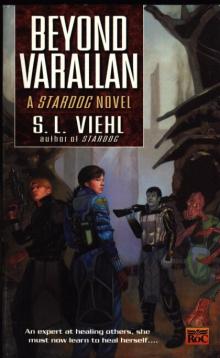 Beyond Varallan
Beyond Varallan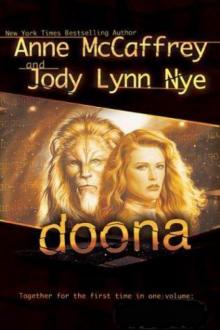 Doona Trilogy Omnibus
Doona Trilogy Omnibus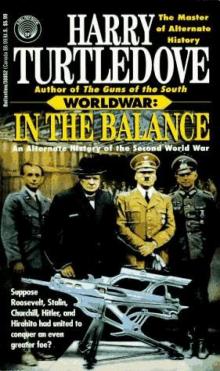 In th Balance
In th Balance Planerbound
Planerbound The Nightmare begins
The Nightmare begins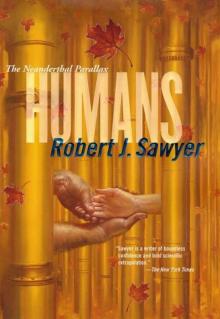 Humans
Humans Son Of Spellsinger
Son Of Spellsinger